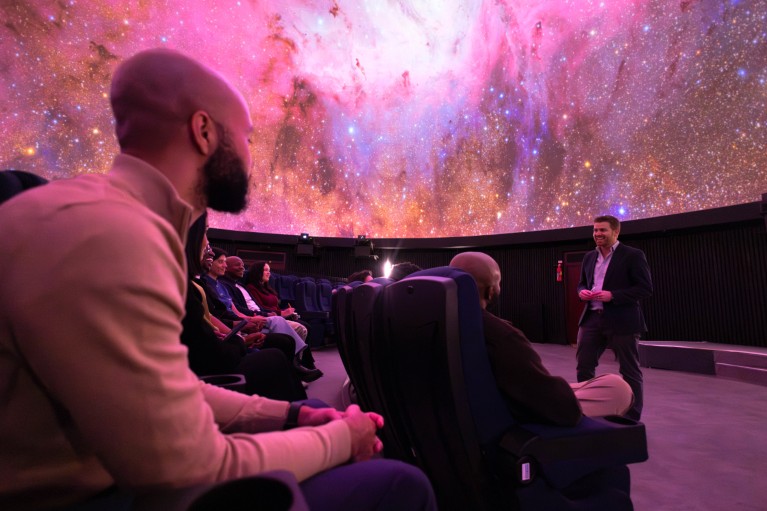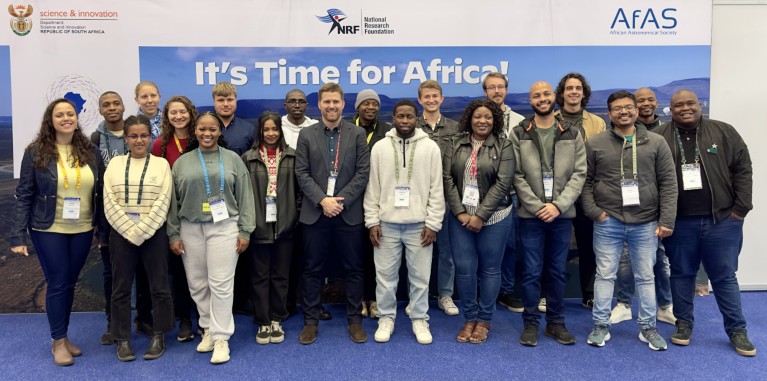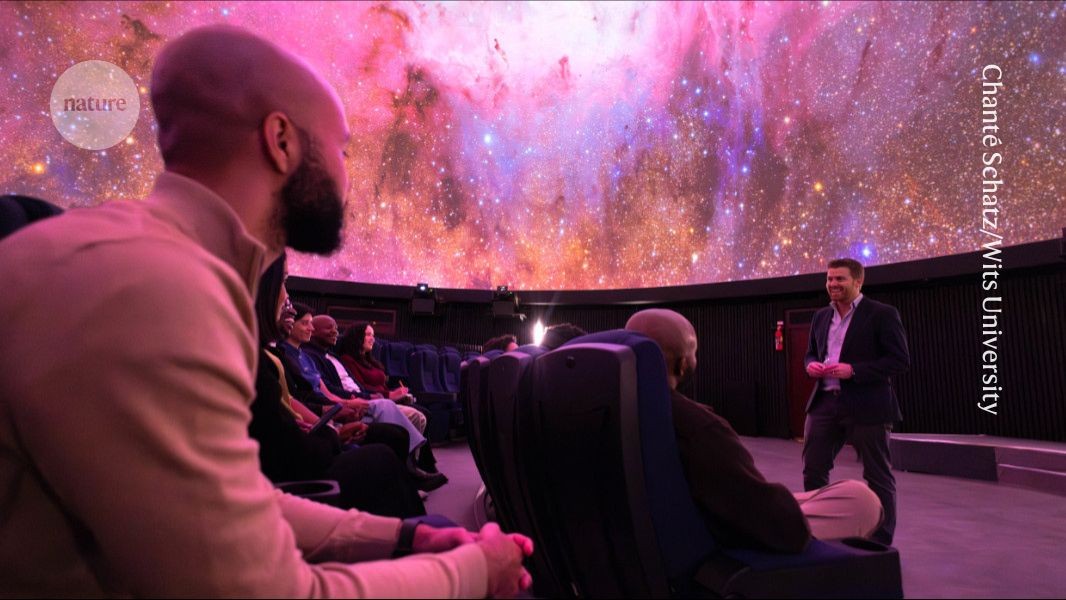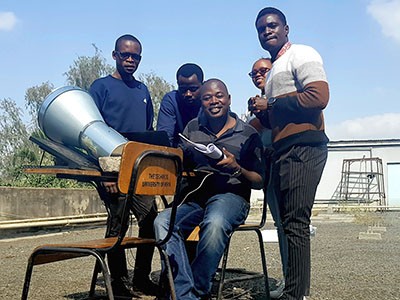
Roger Deane speaks to early-career astronomers in the digital planetarium at the University of the Witwatersrand in Johannesburg, South Africa.Credit: Chanté Schatz/Wits University
At the end of my undergraduate degree, I was trying to figure out what to do with my life. I had always wanted to study astronomy, but my parents thought engineering was a better path. (They were hoping that astronomy would be a passing phase.)
Then suddenly, there was this amazing opportunity in astronomy — South Africa was chosen to host part of the SKA. But even as a naive 20-something-year-old, it was clear to me that South Africa had a much bigger plan to grow astronomy on the continent and I wanted to be involved in it. Every child has some innate interest in the cosmos, and radioastronomy investigates some of the Universe’s most exotic phenomena, from black holes to spinning neutron stars and the Big Bang afterglow. When you combine the chance to study this fascinating topic with the largest radio telescopes in the world built by big international teams, what results is a natural magnet for aspiring young minds. There was also this overarching plan to grow radioastronomy in Africa.
I received a South African Radio Astronomy Observatory (SARAO) scholarship for my master’s in astrophysics and space science at the University of Cape Town (UCT), and then attended the University of Oxford, UK, for my PhD. Next, I had to make a key decision: I could pursue my career abroad or I could go back to South Africa, where it felt like things were happening in the field. I started my first postdoctoral position at UCT in 2012, the same year that it was decided to split the SKA site between South Africa and Australia — and the enthusiasm in South Africa was incredible. When I returned to UCT, the astronomy department had grown threefold since I had left. South Africa had hosted the FIFA Football World Cup two years before and South African researchers really felt as though, with the SKA, we had won the world cup of science. The collective sense of possibility was palpable.
‘I didn’t know someone could pursue astronomy as a career’
After finishing SARAO-funded postdoctoral studies at the UCT and at Rhodes University, Makhanda, I decided to jump away from the protected postdoc environment where you are attached to more senior people, and establish myself. I was energized by the idea of starting a group and contributing to this bigger picture in which Africa was a hub of astronomy research.
When I arrived at the University of Pretoria in 2018 to establish a radioastronomy group, I remember walking down the corridor and thinking, ‘OK, we’ve got to take this from zero to something.’ But I wasn’t really alone as a new group leader — there was this group of senior SARAO staff members who had my back.
Kim Anthony, the head of the SARAO human-capital-development programme, is ready to help any of the programme’s members at any hour. This programme supported me again as a professor, and that’s been a real strength.
There were great students at the University of Pretoria and when I left about two and a half years later, the radioastronomy group had 2 faculty positions and about 20 graduate students. During my time there, we were part of the international Event Horizon Telescope team that produced the first direct image of a black hole, and we worked on brand new data from SKA’s precursor, the 64-dish MeerKAT radio telescope, among other research.

Roger Deane (front row, fifth from left) with many of the early-career astronomers he has trained at both the University of Pretoria and the University of the Witwatersrand at the International Astronomical Union general assembly in 2024 in Cape Town, South Africa. Credit: Roger Deane
Return on human investment
The continent’s radioastronomy footprint is growing. I’ve supervised students and postdocs from Zambia, Kenya, Botswana, Eswatini and Ghana. I’ve also lectured in South Africa and Botswana as part of the Development in Africa with Radio Astronomy programme, a joint UK–South African project that offers basic astronomy training in eight African countries.



